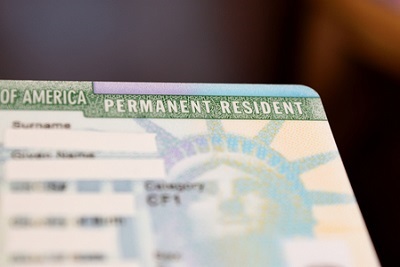Many UK citizens (as well as citizens of other countries) live or work in the US at some point, and they often acquire Legal Permanent Resident status, also known as a Green Card.
When returning to the UK (or another country) though, the question arises about whether they should retain their US green card or not.
One of the main reasons why non-US citizens who move out of the US choose to retain a Green Card is to keep open the possibility of returning to live or work in the US again in the future.
One of the main reasons that non-US citizens choose not to retain their Green Card on the other hand is because having one comes with a set of US tax filing and reporting requirements that continue to apply even when you live outside the US.
Key Updates for 2025
- The Foreign Earned Income Exclusion (FEIE) limit has increased to $130,000 for the 2025 tax year.
- A proposed bill, “The One Big Beautiful Bill,” aims to impose a 5% remittance tax on money sent abroad by non-citizens, including Green Card holders.
- The IRS has confirmed that US taxpayers abroad have until June 16, 2025, to file their 2024 federal income tax returns.
US tax implications for Green Card holders in the UK
Green Card holders are subject to the same US tax filing requirements as US citizens. For both groups, this means filing a US federal tax return reporting all your global income wherever in the world you may live.
This means that Green Card Holders living in the UK will normally have to file both US and UK taxes (as a US Green Card Holder and a UK resident), and both countries tax worldwide income.
When they file their US tax return however, they can claim the Foreign Tax Credit , by filing IRS Form 1116, which allows them to claim US tax credits up to the value of the UK income taxes that they have paid. For most people, this will remove their US tax liability, although they still have to file both tax returns.
Green Card holders in the UK get an automatic US filing extension until June 16th, which is normally enough time for them to file their UK taxes (due after early April) first; if not, they can request a further US filing extension until October 15th.
Other US reporting requirements for Green Card holders in the UK
“Giving up a Green Card can involve an unpleasant tax surprise.” – Forbes
Furthermore, Green Card holders in the UK are required to report any UK registered bank and investment accounts that they may have if the total, combined value of the balances of all their non-US registered financial accounts surpasses $10,000 at any moment during a year by filing a Foreign Bank Account Report (FBAR) to FinCEN.
If they have non-US registered financial assets worth over $200,000, they also have to report them on IRS Form 8938 when they file their federal return.
They may also have to report their non-US businesses (including partnerships), trusts, and gifts and distributions received.
Giving up a Green Card
Due to the complex and burdensome nature of US tax and reporting requirements for Green Card holders who live in the UK (or any other non-US country), it’s often preferable to give up a Green Card when moving out of the US unless there is a realistic likelihood of returning again fairly soon.
Green Card holders who do want to retain their Green Card though should submit USCIS Form I-131 before leaving the US. This application for a reentry permit can be used for absences from the US for up to two years at a time. Green Card holders living abroad must then continue filing US taxes on their worldwide income as described above.
To renounce a Green Card, it’s necessary to submit USCIS Form I-407, either before leaving the US, or afterwards.
Giving up a Green Card can have an exit tax implication though of the person has held their Green Card for at least 8 out of the last 15 years f they –
– had average annual net income tax payments for the five years before termination of residency of over $165,000 (in 2018) a year
– have a net worth of over USD $2 million on the date of termination of residency
– fail to certify, under penalties of perjury, that all US federal tax obligations have been complied with for the five tax years preceding the tax year that includes the expatriation date
If any of these three circumstances apply, the exit tax is calculated as the capital gains tax liability if all the person’s assets were sold the day before they give up their Green Card.
This can cause issues for non-US citizen Green Card holders who move to the UK (or another country) and subsequently don’t continue filing US taxes as they aren’t aware that they are required to.
We strongly recommend that Green Card holders living in, or planning to return to, the UK contact a US expat tax specialist at the earliest opportunity to ensure that they follow the best possible path in terms of fulfilling their requirements while minimizing their US tax liability.
The year after giving up a Green Card, it’s still necessary to file a final US tax return and include IRS Form 8854 to certify that all US tax requirements have been complied with.
Giving up a Green Card doesn’t prevent someone from applying for one again in the future.
Catching up
Green Card holders in the UK who are behind with their US tax filing since leaving the US because they weren’t aware that they still have to file US taxes from abroad can catch up without facing penalties under an IRS amnesty program called the Streamlined Procedure. Always seek advice from a US expat tax expert though.
Frequently Asked Questions
-
Do I have to file US taxes if I live in the UK with a Green Card?
Yes. Green Card holders are considered US tax residents and must file a US tax return every year—regardless of where they live or earn income.
-
What income do I have to report to the IRS?
You must report your worldwide income, including salary, self-employment earnings, rental income, investments, pensions, and any UK-sourced income.
-
Do I also need to file UK taxes?
Most likely. If you’re a UK tax resident, you’ll also need to report your income to HMRC. The UK taxes residents on worldwide income, with a few exceptions for non-domiciled individuals.
-
Won’t I be taxed twice?
Not necessarily. The US–UK tax treaty and the Foreign Tax Credit (Form 1116) help prevent double taxation by allowing you to offset US tax with taxes paid to the UK.
-
Do I qualify for the Foreign Earned Income Exclusion (FEIE)?
Yes—if you meet the Physical Presence Test or Bona Fide Residence Test, you may exclude up to $130,000 of earned income for tax year 2025 by filing Form 2555.
-
Do I need to report UK bank accounts or pensions?
Yes. If your combined foreign financial accounts exceed $10,000 at any point in the year, you must file a Foreign Bank Account Report (FBAR). You may also need to file Form 8938 (FATCA).
-
How are UK pensions treated for US tax purposes?
UK pensions are tax-deferred in the UK, but the US may tax them annually, depending on plan type and contributions. Tax treatment is complex, so consult an expat tax specialist.
-
Can I claim the standard deduction as a Green Card holder?
Yes. Green Card holders can generally claim the standard deduction or choose to itemize deductions, just like US citizens.
-
What happens if I don’t file my US taxes?
You may face penalties, interest, and even loss of your Green Card for willful non-compliance. Timely filing helps you maintain good standing with both the IRS and USCIS.
-
How do I file if I’m married to a non-US citizen?
You can file jointly if your spouse elects to be treated as a US tax resident (and reports their global income), or file separately and exclude your spouse’s income. Choose carefully—each has implications.

 Connect on LinkedIn
Connect on LinkedIn

